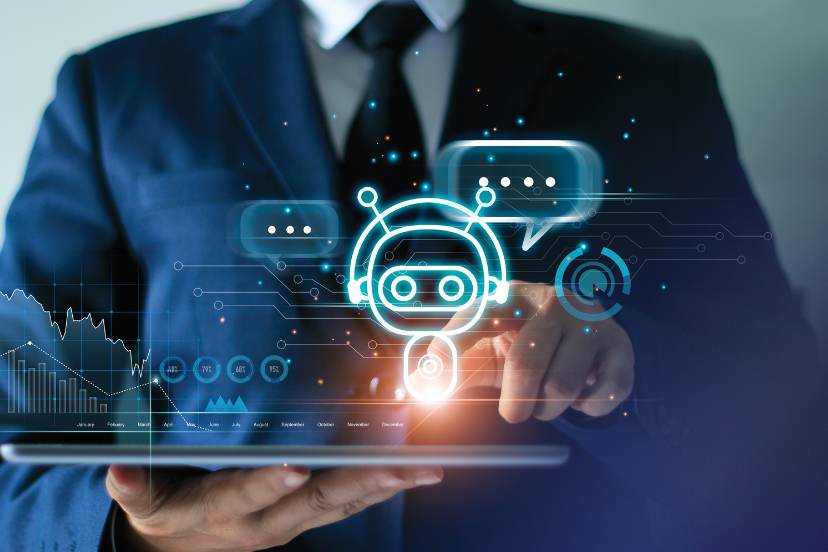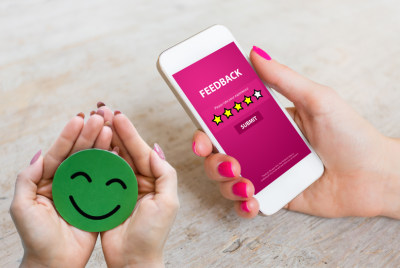AI Marketing Automation: Revolutionizing Digital Marketing
In today’s fast-paced digital landscape, staying ahead of the competition is crucial for businesses looking to thrive. AI marketing automation has emerged as a game-changer, providing companies with powerful tools to streamline their marketing efforts, boost efficiency, and enhance customer experiences. In this comprehensive guide, we’ll delve into the world of AI marketing automation, exploring its benefits, applications, and how it can reshape your digital marketing strategy.
What is AI Marketing Automation?
Let’s kick things off by unraveling the concept of the mentioned automation.
Defining AI Marketing Automation
This kind of automation, also known as artificial intelligence marketing automation, is a cutting-edge technology that leverages artificial intelligence and machine learning algorithms to streamline and optimize various marketing tasks and processes. It empowers marketers to automate repetitive and time-consuming activities, making their campaigns more efficient and data-driven.
The Evolution of Marketing Automation
To understand the significance of the automation, we need to trace its evolution.
Traditional Marketing Automation
Before the AI revolution, traditional marketing automation relied on rule-based systems. Marketers programmed predefined rules and workflows to trigger specific actions, such as sending emails or segmenting leads. While effective to some extent, these systems lacked the adaptability and intelligence of AI.
Enter AI-Powered Automation
This automation takes things up a notch. It’s like having a digital marketing assistant that continuously learns and adapts. By analyzing vast datasets and real-time customer behavior, AI systems make smart decisions, optimizing marketing strategies and delivering highly personalized experiences.
How Does AI Marketing Automation Work?
Now that we’ve scratched the surface, let’s dive deeper into the mechanics of this kind of automation.
Data Collection and Analysis
At the core of AI marketing automation is data. AI algorithms gather and analyze data from various sources, including websites, social media, and customer interactions. This data forms the foundation for personalized marketing campaigns.
Predictive Analytics
AI excels at predictive analytics. By identifying patterns and trends within data, AI can predict future customer behaviors and preferences. This enables marketers to proactively engage with customers and tailor their content.
Automated Campaigns
One of the key benefits of AI marketing automation is the ability to create and execute marketing campaigns automatically. From sending emails triggered by user actions to scheduling social media posts, AI takes care of the heavy lifting.
Personalization at Scale
This kind of automation enables hyper-personalization. It can customize content, product recommendations, and offers for individual customers, creating a more engaging and relevant experience.
Benefits of AI Marketing Automation
Why should businesses embrace this kind of automation? Let’s explore the myriad advantages it offers.
- Enhanced Efficiency: With AI handling repetitive tasks, marketing teams can focus on strategic initiatives. This boosts overall efficiency and productivity.
- Improved Lead Nurturing: AI can identify leads that are more likely to convert, allowing marketers to tailor their efforts towards high-potential prospects.
- Data-Driven Decision-Making: AI provides valuable insights based on data analysis, enabling marketers to make informed decisions and refine their strategies.
- Personalization: Customers appreciate personalized experiences. This kind of automation helps deliver content and offers that resonate with each individual.
- Cost Savings: Automating marketing tasks can lead to substantial cost savings in the long run, as fewer human resources are required for manual work.
Applications of Thea Automation
The versatility of this automation extends across various aspects of digital marketing. Let’s explore its applications.
Email Marketing
AI can analyze email engagement data to send targeted content and optimize send times for better open and click-through rates.
Content Recommendations
By analyzing user behavior and preferences, AI can suggest relevant blog posts, videos, or products to website visitors.
Social Media Management
AI tools can schedule posts, analyze engagement, and even respond to customer inquiries on social media platforms.
Customer Segmentation
AI helps segment customers based on their behavior, allowing businesses to create tailored marketing campaigns.
Chatbots and Virtual Assistants
AI-powered chatbots provide instant customer support and can guide users through purchasing decisions.
Ad Campaign Optimization
AI algorithms can manage and optimize digital advertising campaigns, allocating budgets to the most effective channels and keywords.
FAQs about AI Marketing Automation
Q1: What is the role of AI in marketing automation?
AI in marketing automation plays a central role in automating tasks, personalizing content, analyzing data, and making data-driven decisions to improve marketing strategies.
Q2: How can AI marketing automation benefit small businesses?
Small businesses can benefit from this automation by saving time, reducing marketing costs, and delivering highly targeted and personalized content to their audience.
Q3: Is AI marketing automation suitable for all industries?
Yes, this automation using AI can be adapted to various industries, including e-commerce, healthcare, finance, and more. Its flexibility makes it a valuable tool across sectors.
Q4: What data is essential for this kind of automation?
The automation relies on data such as customer demographics, online behavior, purchase history, and interaction with marketing campaigns.
Q5: Can this automation replace human marketers?
While AI can automate many tasks, human marketers remain essential for strategy development, creative content creation, and interpreting AI-generated insights.
Q6: Are there risks associated with this automation?
Like any technology, this kind of automation has potential risks, including data privacy concerns and the need for continuous monitoring and optimization.
Conclusion
In the ever-evolving digital landscape, harnessing the power of AI marketing automation is no longer an option but a necessity. Its ability to streamline operations, boost personalization, and drive data-driven decision-making sets businesses on a path to success. By embracing the automation, you’ll not only stay competitive but also provide your customers with the tailored experiences they expect in today’s market. So, take the plunge into the world of automation using marketing AI and watch your digital marketing efforts reach new heights!




